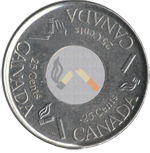Welcome to the “Stop Smoking for Safer Surgery” web site.
This site is designed for smokers who are about to have surgery, and the medical professionals, friends and family who care for them.
Smoking increases the stress on the heart during anesthesia. Smoking increases the risk of breathing complications and wound infections after surgery. For many operations, especially plastic surgery or bone and joint surgery, smoking significantly reduces the chance of a successful operation.
The good news is that stopping smoking before surgery – even for a short time - can reduce those risks and make it more likely that surgery will be successful:
• One of the problems with smoking is that cigarette smoke contains carbon monoxide. This chemical combines with red blood cells and reduces their ability to carry oxygen around the body. Stopping smoking for four hours halves the level of carbon monoxide in the blood. Stopping smoking for eight hours before surgery reduces the amount of carbon monoxide in the blood to a safe level. Continuing to avoid smoking after surgery helps the blood carry oxygen to the healing tissues, where it is used to help fight infection and to encourage wound healing.
• Smoking cigarettes damages the lungs. The lungs take several weeks to recover from the damage caused by cigarette smoking. The sooner patients stop smoking before surgery, the longer time the lungs have to heal. After six weeks without cigarettes, the risk of breathing problems after anesthesia is greatly reduced.
This web site provides more details about these issues, and provides links to the scientific articles which prove that stopping smoking before surgery reduces risk and improves the result of surgery. It offers some specific advice and guidance about how to stop smoking before surgery, along with links to various resources.
For health care professionals, there are also some academic resources such as Powerpoint presentations, downloadable posters and references related to perioperative smoking cessation.
If this site encourages and supports you to stop smoking before your surgery, or if it helps you help your patients to quit before their surgery, it will have served its purpose.



